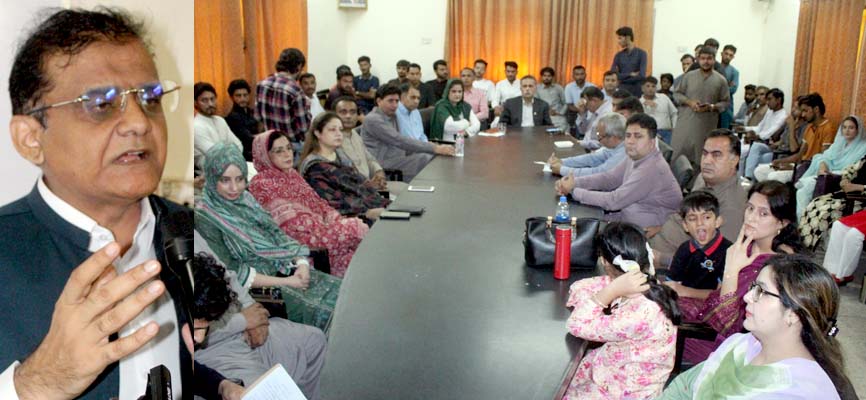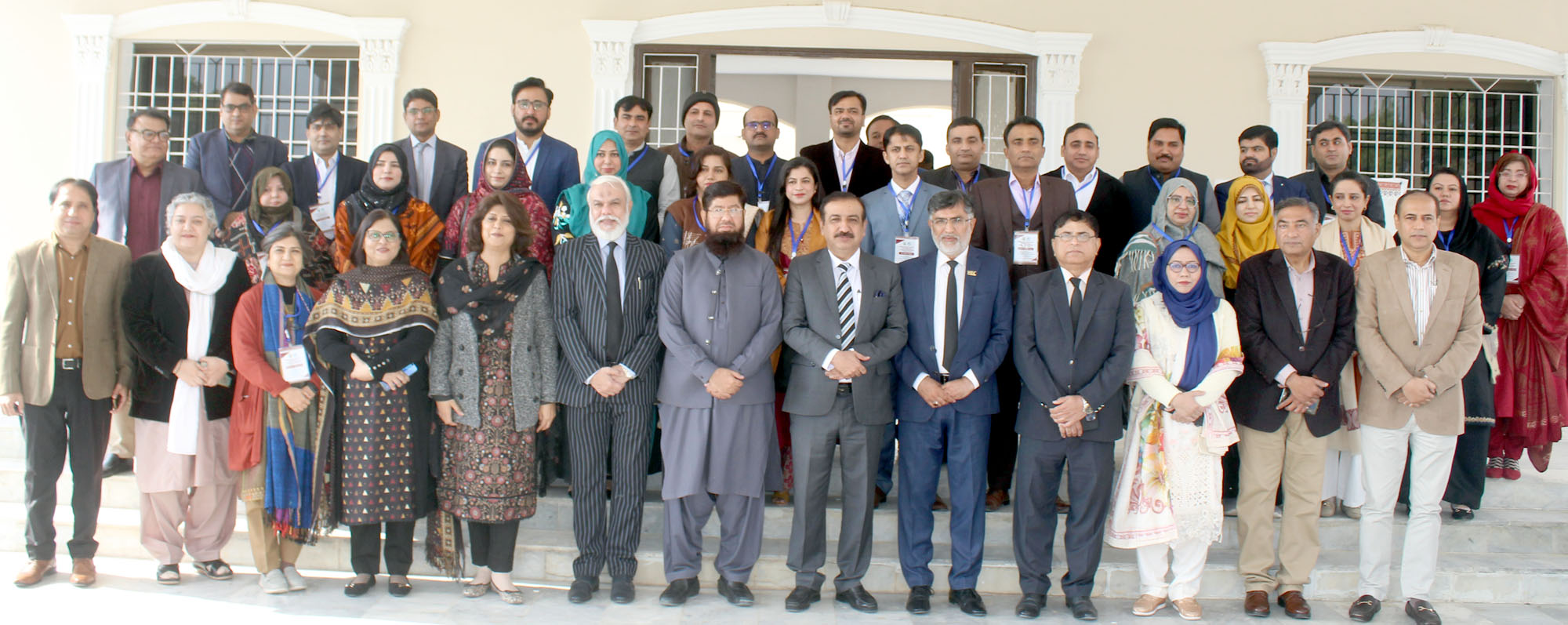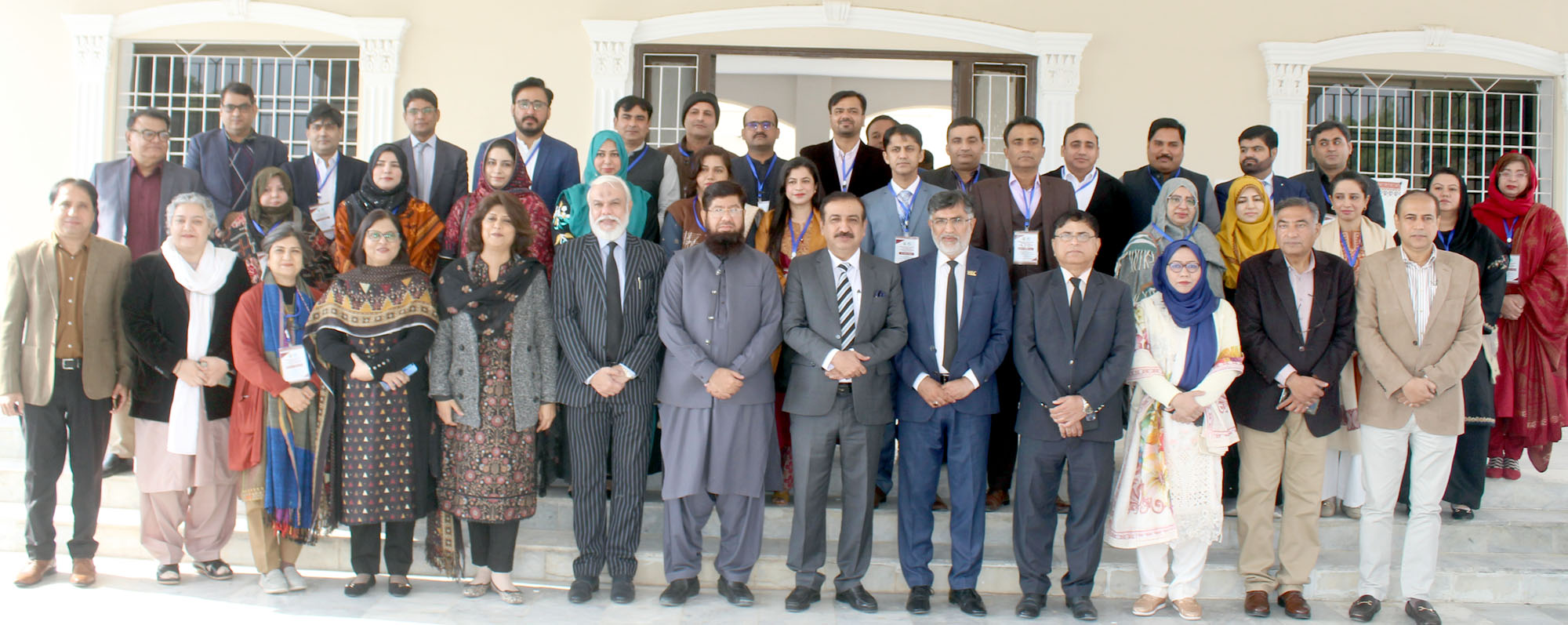
Speakers explore Pakistan’s military achievements, diplomatic skills at Sindh University
Speakers at a conference at the University of Sindh have said that Pakistan’s military success in “Marka-e-Haq” was achieved through responsible strategy, diplomatic skill and political acumen in response to India’s aggressive actions.
They stressed the importance of commemorating such victories alongside national independence celebrations and highlighted the need for peace journalism and regional stability.
The conference, titled “Marka-e-Haq: Strategies and Achievements of Pakistan’s Military Campaign” was organized by the Department of International Relations in collaboration with the Department of Media and Communication Studies as part of the ongoing Independence Day celebrations.
In his presidential remarks, Vice-Chancellor Professor Dr. Khalil Rehman Khoumbati praised the organizers for selecting a theme of great national relevance.
He said that “Marka-e-Haq was not just a military success story; it was a testament to Pakistan’s ability to combine strategy, diplomacy and unity of purpose in safeguarding its sovereignty.
“Such discussions help the younger generation understand the sacrifices made for our freedom and the responsibilities that come with it,” he said and added that academic platforms must continue to examine the lessons of history to strengthen the nation’s resolve and promote peace.
Chairperson of the Department of International Relations Prof. Dr. Ishrat Afshan Abbasi welcomed the guests and noted that the conference was a continuation of the Independence Day activities.
She elaborated on the distinction between Marka-e-Haq and Operation Bunyan Al Marsoos, explaining how Pakistan acted with responsibility and strategic precision.
She said that the nation’s success extended beyond the battlefield into diplomatic and political arenas. She paid glowing tribute to both military personnel and civilians for their dedication to defending the homeland.
Director of Media at Radio Pakistan Hyderabad, Dr. Ali Akbar Hingorjo underscored the significance of marking war victories along with independence celebrations.
He discussed Pakistan’s military strategies, the importance of defensive operations and provided background on Operation Bunyan Al Marsoos.
Dr. Hingorjo also analyzed the role of media in Pakistan and India during conflicts, criticized the Modi government’s aggressive policies and addressed the Kashmir dispute and India’s attempt to undermine the Indus Waters Treaty. He called for promoting peace journalism in the region.
Associate Professor at Department of International Relations Dr. Farooque Legari presented the historical context of the war, explained the “limited war doctrine,” and offered strategic lessons through a case study on the Pakistan–India conflict.
Chairman of the Department of Media and Communication Studies Professor Dr. Qasim Nizamani delivered the vote of thanks. Earlier, Ajraks were presented to the distinguished guest speakers in a cultural souvenir distribution ceremony.


